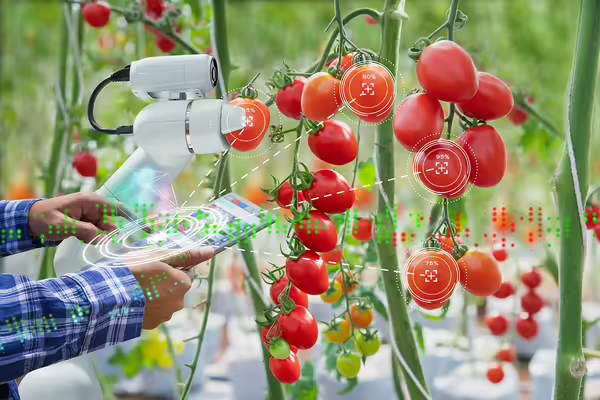
URBANA, Ill. — Autonomous equipment may seem like something from a movie or the future when, in reality, it is already in use throughout the agriculture industry. From robotic planting to driverless tractors and drones, these forms of technology are advancing quickly to find their place in today’s farming operations. Within the fast pace, farmworker safety and addressing systematic risks to one’s farm is a necessary piece to include in the ag technology puzzle.
Explore the world of ag technology and safety at the Safety for Emerging Robotics and Autonomous Agriculture SAFER AG Workshop and Demonstration on Dec. 3 and 4 at Funk ACES Library at University of Illinois Urbana-Champaign located at 1101 S. Goodwin Ave., Urbana.
The event includes pre-workshop sessions on Dec. 2 and two days packed with interactive presentations from university and industry experts. SAFER AG works to bring groups from across the ag industry together for exploration, networking, discussion, presentations, and research updates.
“Before technologies can be adopted for everyday farm use, the human components of technology interaction, research, and development must be experienced to build up the conversation,” says Salah Issa, assistant professor and Extension specialist in the Department of Agricultural and Biological Engineering, College of Agricultural, Consumer and Environmental Sciences.
Topics for the SAFER AG Workshop:
- Explore the current state of autonomy in agriculture.
- Navigate questions about safety in agricultural autonomy.
- Address workforce needs for the future of ag.
- Understand the role of safety in product development.
- Provide feedback for safer and more reliable autonomous agriculture.
On Dec. 4, anyone can participate in a demonstration activity of autonomous systems from 9 a.m. to noon at the Stock Pavillion located at 1402 W. Pennsylvania Ave., Urbana. Some technologies included in the demo include interacting with sensors and robotic platforms, and a preview of upcoming technologies. Participation in the demonstration portion is free and open to the public.
“Participation in the SAFER AG event helps researchers to identify the knowledge gaps and bring awareness of the need for farmworker safety and health’s direct impact on the future of the technological systems,” says Issa.
The cost to attend is $75 and includes meals on both days for those who register by Nov. 24. A farmers-only rate is also available at $20. Find the full agenda, including expanded topics, event sponsors, presenters, lodging, parking information, and registration, at go.illinois.edu/SAFERAG.
The SAFER AG workshop is supported by the USDA National Institute of Food and Agriculture.
For questions or if you need a reasonable accommodation to participate, contact Salah Issa at salah01@illinois.edu. Early requests are strongly encouraged to allow sufficient time to meet access needs.
SOURCE: Salah Issa, assistant professor and Extension specialist in the Department of Agricultural and Biological Engineering, College of ACES, University of Illinois Urbana-Champaign.
WRITER: Jenna Braasch, media communications coordinator, Illinois Extension.
University of Illinois Extension develops educational programs, extends knowledge, and builds partnerships to support people, communities, and their environments as part of the state's land-grant institution. Extension serves as the leading public outreach effort for University of Illinois Urbana-Champaign and the College of Agricultural, Consumer and Environmental Sciences in all 102 Illinois counties through a network of 27 multi-county units and over 700 staff statewide. Extension’s mission is responsive to eight strategic priorities — community, economy, environment, food and agriculture, health, partnerships, technology and discovery, and workforce excellence — that are served through six program areas — 4-H youth development, agriculture and agribusiness, community and economic development, family and consumer science, integrated health disparities, and natural resources, environment, and energy.